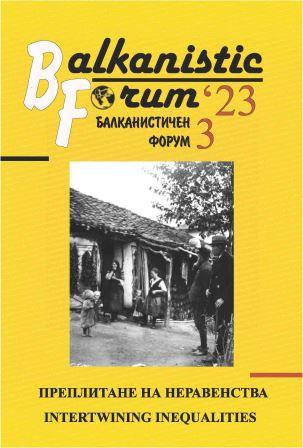Зануляване, или как руско-украинският въпрос битува в България преди век
Resetting the Ideological Clock: How the Russian-Ukrainian Issue Was Part of Bulgarian Discourse a Century Ago
Author(s): Roman HadzhikosevSubject(s): History, Language studies, Language and Literature Studies, Cultural history, Studies of Literature, Recent History (1900 till today), Ukrainian Literature, South Slavic Languages, Interwar Period (1920 - 1939), Sociology of Literature, Russian Aggression against Ukraine
Published by: ЮГОЗАПАДЕН УНИВЕРСИТЕТ »НЕОФИТ РИЛСКИ«
Keywords: liberation; war; Slavism; race; nation; people; independence
Summary/Abstract: This article examines the discussion, which took place in Bulgaria shortly after the beginning of the First World War, between the Austrian deputy of Ukrainian origin Longin Tsechelski and Nikola Bobchev and Yaroslav Romanchuk. At the end of 1914, Tsechelsky arrived in Sofia to campaign for the support of the Ukrainian people in the struggle for independence publishing a pamphlet "How Russia "liberates" Ukraine?". It accuses Russia of having provoked the war by deceiving Serbia; of using pan-Slavic propaganda promulgating the idea of a single Slavic race; of denying Ukrainian nation the right to self-determination because it is conceived as being part and parcel of the Russian people; of not accepting Ukrainian language and Ukrainian literature as different from the Russian language and Russian literature but were instead considered to be their adjuncts, and some other similar arguments.Russophile circles in the country were immediately prompted to take action, which resulted in a response to Tsechelski with an article by Nikola Bobchev and a brochure by Romanchuk, a Ukrainian living and working in Bulgaria. Naturally, they try to refute the claims by using well-known arguments, talking about the liberating role that Russia played in fighting against Ottoman „slavery“, the Slav solidarity and the commercial interests of the West and more specifically of Austria during that historical moment. In the following year, a new answer followed in a book of more than a hundred pages by Tsechelski and another one by Romanchuk.
Journal: Балканистичен Форум
- Issue Year: 32/2023
- Issue No: 3
- Page Range: 82-98
- Page Count: 17
- Language: Bulgarian
- Content File-PDF

